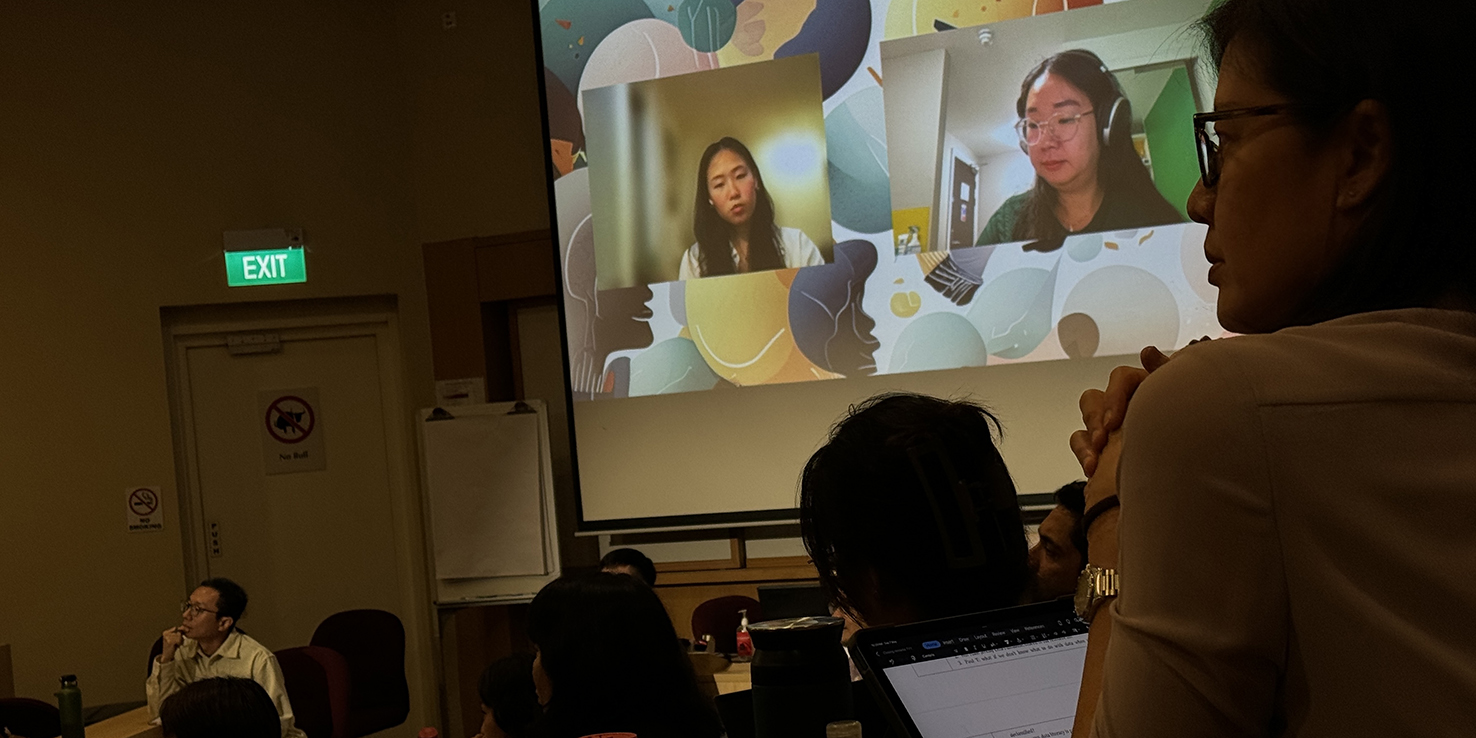In her closing remarks at the AcademiaSG’s Knowledge Praxis conference, TEO YOU YENN summarised what participants revealed about current constraints on knowledge production, the effects of these conditions, and the possibilities that still exist.
What a marvelous two days this has been. Thank you to everyone who’s spoken for so generously sharing your varied talents and expertise with the group, and thank you to the group for collectively generating this shared space that is so energetic and conducive to learning.
To remind everyone of what was covered, let me list again the panel titles of the two days: (1) Gaps in knowledge production; (2) media and knowledge; (3) knowledge-based advocacy; (4) de-centering knowledge production; (5) data data everywhere; (6) launch of the book, Counter-Cartographies: Reading Singapore Otherwise by Joanne Leow; (7) classrooms as spaces of knowledge.
I’d like to reflect on things I’ve learnt by highlighting 3 themes: conditions; consequences; possibilities.
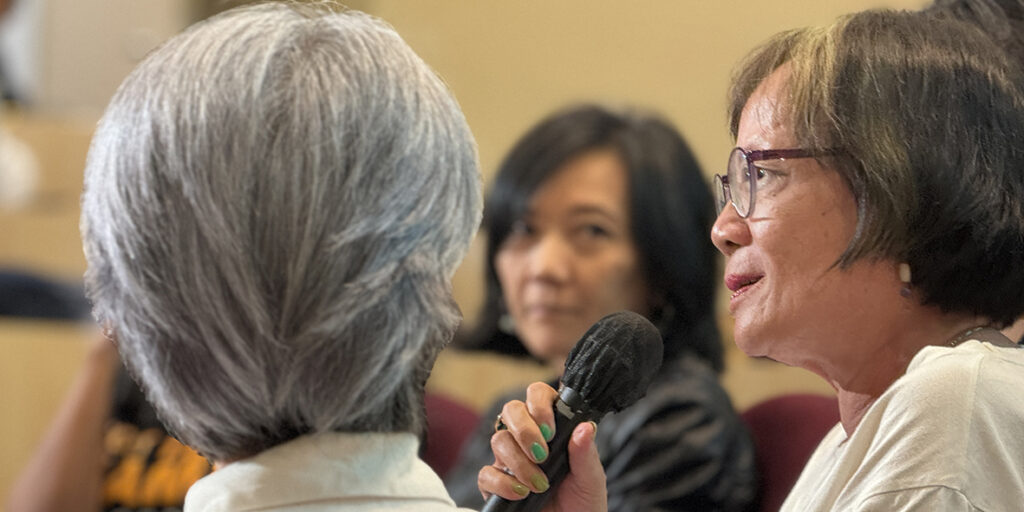
1. Conditions
Many of our speakers reflected on the conditions their work are embedded in, and more specifically the constraints faced by knowledge producers in Singapore today.
I would first point out that the work of reflecting on these conditions and constraints is difficult and important and not to be taken for granted. It is fish thinking about water.
What did all the fish have to say about water? Here are a few things:
- There are huge asymmetries in power in Singapore, and the state as a social actor has disproportionate power relative to artists, activists, journalists, academics.
- Furthermore, it is not just unequal access to data or information that is a problem. There are also mental frameworks/dominant discourses/certain modes of common sense, upheld by state machinery, that permeate our society. Debby, talking about climate science, reminds us that knowledge is never neutral, and that the prioritization of business and growth makes certain kinds of thinking about the climate crisis more legible than others. Yi Ming also points to the dominance of technocratic vocabularies that flatten and simplify human capabilities and crowd out alternative dreams. In Chee Kien’s presentation, we’re reminded that capital or growth-centric frames can relegate aspects of life to residual spaces of peculiar nostalgia. We also heard about how data on migrant workers is decontextualized and value removed, preventing us from thinking data in a human way. Chuanfei points to the deep internalization of this hegemony when he speaks of his students’ “internal KPI, [tracking] any and every progress.” Indeed, the phrase “impostor syndrome” was used a number of times by our speakers, signaling that we too have internalized certain notions of who can and cannot speak, and how we can and cannot talk.
- This plays out in the asymmetry of knowledge about various things in society, and is compounded by the hoarding and monopolization of data. Kirsten illustrated this with her discussion of the death penalty and executions, Shannon spoke about his trials and tribulations with trying to access supposedly open data. Hui Yuan showed the grandstanding that occurs in parliament to obscure this particular political economy of data monopolization.
- Across the panels, we see of course that we are not all working in the same space and this shared condition of state hegemony looks slightly different in different domains. There are divergent tools, different use of carrots and sticks, and therefore also variant risks and costs.
- Stephii pointed to the crowding out of NGOs by GONGOs, the sucking up of oxygen in civil society space, the diluting of messaging around rights, and the risks of deportation of migrant workers that make it risky for them to advocate on their own behalf. Ariffin and Jason, from quite different vantage points, spoke of the legacy of laws limiting freedoms of expression. Cherian and Jackie talked about appraisal systems in universities and the perverse incentive systems they create.
On the issue of conditions and constraints, therefore, I think we’ve seen a range of examples and specificities that give a clear sense that there is an intentionality to social control, and many levers and tools that bear down on us, even as our work appears to be in quite different professional spaces. So we fish, we’re noticing there are baits, and hooks, and sometimes spears in our water.
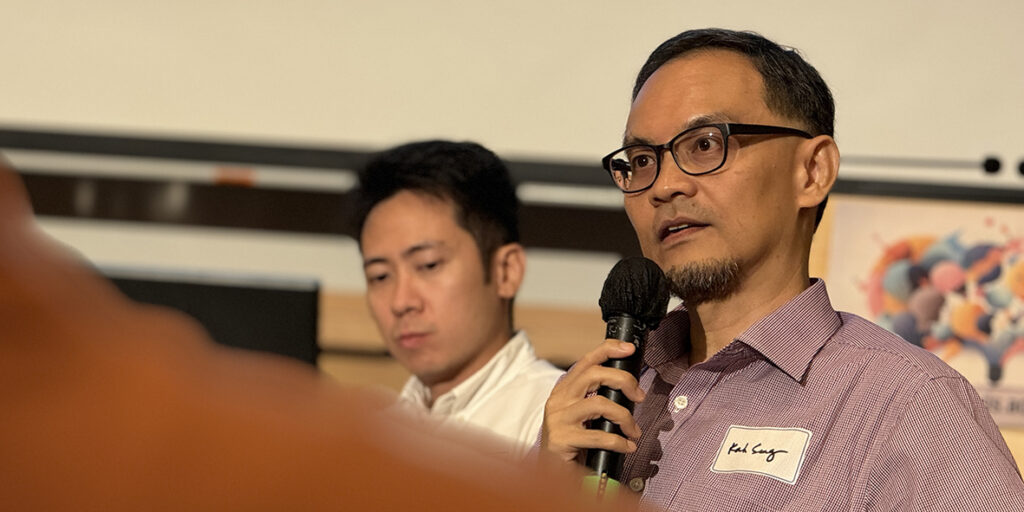
2. Consequences
What are the consequences of this? Here, I think we see that there are many costs and losses.
- There are losses and gaps in what we know. Jackie refers to these with the phrase “undone science.” Catherine, speaking of Bukit Brown, talks about the loss of history and heritage that is precious and can’t be regained when lost. Joanne speaks of absences that are literal, then metaphorical, and also literary. So not just undone science but also undone art.
- These are not merely theoretical losses or just losses for people interested in knowledge. Chee Kien points out that the loss of the past has consequences for present policies, for example around food cultivation. Cherian points to all the missed opportunities when scholars could have but failed to engage on public issues, contentious issues that affect our possibilities for a more just and open society.
- When certain frames for thinking about society are dominant, and when certain facts and stories about our social world are not known or told, this can also have very real consequences for the lives of groups who are especially marginalized in our society. Corinna gave the example of gendered violence and the long time it’s taken to bring attention to the issue. Kokila pointed to potential of knowledge empowering the marginalized, such as low-wage workers, and how regularly this potential is not sufficiently attended to. We also see migrant workers whose lives are rendered less valuable.
- And there is the problem of being trapped in a vicious cycle in which the difficulty of doing the work—of generating art, finding out information, creating knowledge—also means we have difficulty connecting to a public or even building a receptive public. Here, we heard many discussions that remind us that figuring out who a public audience is and how to appeal to them isn’t straightforward. Part of this is about generational gaps and technological shifts but I think even more than that, it is about the legibility of our work as knowledge producers. Since we live in a society where, as Shannon showed, the public audience is regularly misled, we cannot expect our work to straightforwardly travel into the world and be received the way we intend.
- So, it turns out, not only are we trying to avoid baits and hooks and spears, the water is also muddy.
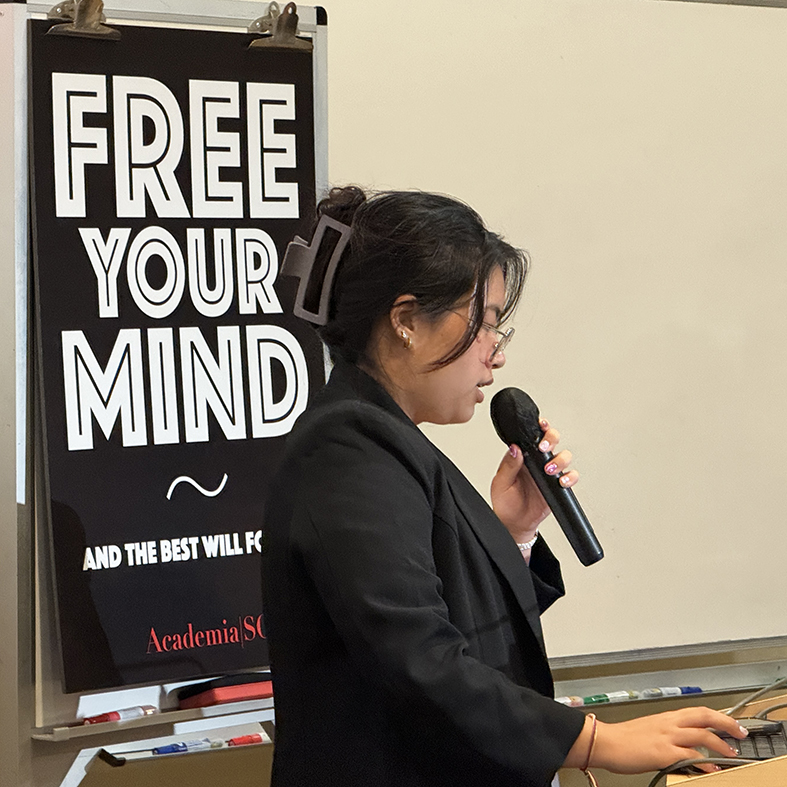
3. Possibilities
Ok, then how? Fear not, because in a gathering of artists and activists and journalists and academics, we somehow still find spaces of possibilities and promise—got bait, got hooks, got spear, water muddy, bring it! I think our speakers also gave us a lot of tools for imagination.
- First, the work of reflection and learning from the past matters. Heng Leun talked about Drama Box doing this every 3 to 5 years, this process of taking apart what’s been built and building again. Ariffin talked about learning from mistakes to sharpen the capacity for making judgment calls. Corinna spoke of ensuring that there are processes built into one’s group so that there’s tension and disagreement and skepticism from within, so that there can be continuous learning and recalibration.
- Second, if part of the problem we all face has to do with state hegemony, then creating some spaces of independence is urgent and necessary. We heard some really powerful examples—independent media platforms like We the citizens and Wake up Singapore and Jom as well as networks like NIMBUS; Bukit Brown and its many documentation and public outreach activities. The independence forged is about creating spaces that are outside the reach of technocratic language and reward systems; creating activities, practices, processes outside of the imagination of officially-sanctioned activities.
- Third, as we reflect on our experiences and create independent spaces, some rather extraordinary transformations become possible. We can and should think in terms of the greater good, as Kah Seng points out. We can free our docile bodies, as ila and Jason do, through their art. We can, as Kirsten suggest, rethink what information or knowledge and indeed what rights we’re entitled to. We can learn to read against the grain, as Chee Kien or our friends from Migrant Death Map do. We can even model how to handle data more sensitively and transparently, as Kok Hoe and Hui Yuan, suggest. We can approach data with empathy and humanity, as Pei Ying says. And we can change the story; Kokila points to the powerful shift of story from individual hardship to collective grievance. Our artists, I think, gave us especially rich vocabulary to think how joyous and pleasurable this sort of resistance practice might be. Joanne points out that they excavate, circumvent, wayfind, confabulate. Heng Leun points to theatre as a practice of change that “makes possibilities for one’s life.” Pin Pin refers to the “open tabs in her mind” and Jason tells us that “rolling, rolling on” is not the same as “rolling with it.”
- Fourth, it is clear that this work isn’t, cannot be, solitary work. ila talks about her art in terms of gathering with others, including people she does not immediately understand, and continuously making stories on top of stories. “Gathering to figure out what we do not know. Knowledge that we produce when we are together.” Kirsten speaks of sharing content and capacities, because not everyone is good at or wants to nor needs to do everything. Alysha’s discussion of NIMBUS showcases what independent media is banding together to do. Corinna and Stephii discuss, respectively, the long-term commitment of acting collectively on the issue of gender inequality and migrant workers’ rights. Chuanfei talks about being in a community of other teachers to build one’s pedagogical practice.
- Fifth and relatedly, this collective work must include co-creation or building new publics and new sensibilities. Overall, listening to all the projects people have done and continue to be involved in, I’m struck by the fact that we are discovering new publics and new opportunities for reaching them. So the question of how and through what channels has come up quite a bit in the past two days. Shannon spoke about the importance of building capacity and literacy among students. Haolie also talked about CAPE’s purpose of building civic literacy. Kok Hoe and Pei Ying talked about going into great detail about methodology, not just as a means of protecting oneself from attack, but also of inviting others into the work in a transparent and open way. If there will be scrutiny, don’t shut down, provide resources for that scrutiny. David and Ijlal talked about expanding our thinking of research subjects as active participants, and Kokila too talked about co-creating with communities and in the process transforming what they can do as political agents in their own right. Our last panel spoke of a public that is perhaps particularly special for those of us who are teachers. Chuanfei spoke of students and the classroom as a space for getting students to confront their everyday realities and ethical dilemmas, and Ijlal talked about creating learning opportunities for students to practice problem solving through dialogue, especially with people who don’t already share the same values. Kamal talked about the classroom as a generative and egalitarian space. Haolie pointed out that learning can also happen when peers teach other.
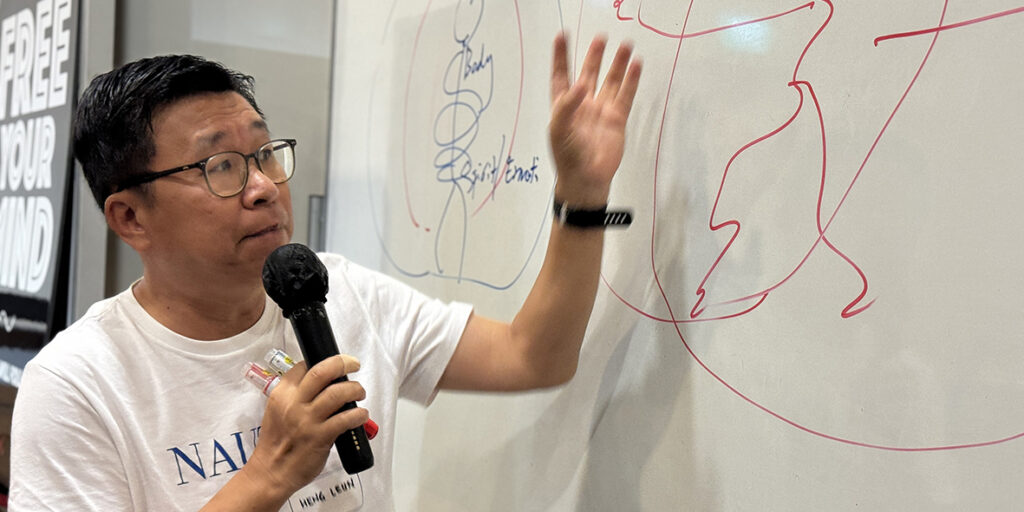
There is a sense, overall, that we don’t all make the same choices about who we want to engage with and the best way to go about it, and that is alright if we are able to build an ecosystem in which different people bring different strengths to the endeavor of engagement. I feel like I’ve gone too far down the fish and water analogy to not end with it. So I guess I’ll end by saying that you guys are some very wise fish. I’m glad we live in the same pond. Thanks for giving us the energy and imagination to just keep swimming.

